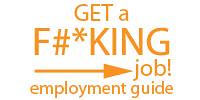 When looking for a big idea, you don't necessarily want to hear "Eureka!" but laughter
When looking for a big idea, you don't necessarily want to hear "Eureka!" but laughter
How much fun are you having at work these days? Let's face it. Having fun isn't as easy as it used to be, even for the most courageous, creative, and curious. Today just reading the headlines can turn an optimist into a fearful pessimist. The stories all seem to make you worry the very real possibility of losing your job.
Here is a critical insight for you. It is impossible for teams to innovate effectively while they are afraid. Impossible. Nothing kills great ideas like fear.
The good news is that fun is the antidote to fear. So if you are an innovation leader in a company that has become fearful, your people are on the road to failure unless you can change your culture. Cue the music, it's time to infuse some fun into the workplace.
The place to start? With you.
Leaders know how to laugh at themselves. Show us a person that can stand up in front of his team and say, "Call me stupid, but I have no idea how to do this," and we will show you a person with great leadership potential. Humble leaders with this trait create cultures that don't take themselves too seriously; cultures willing to take risks; cultures capable of creating and supporting a greater number of ideas.
The Daily Huddle
Why not start every day with a fun meeting? The daily huddle is simple practice that jump-starts the day and sets the stage for big ideas. Verne Harnish, "growth guy" and chief executive officer of Gazelles, which is an outsourced corporate university for midsize firms, taught us about the daily huddle. He developed the practice after studying and writing about John D. Rockefeller in his book The Rockefeller Habits.Our company meets every day at 9 a.m. for no more than nine minutes. The agenda is simple. We share good news, bad news, and how well the company is doing. We use video to connect offices so everyone can attend the meeting. We encourage everyone to take a turn at running the huddle. Most importantly, we try to make them casual, transparent, and fun
In the last year, our daily huddles have included baby pools—where everyone guesses when someone's baby will be born; whether it will be a boy or girl and what it will weigh—costume contests, music trivia, engagement announcements, love poems, and ballads to welcome new employees. Yes, there is a lot of silliness, and not surprisingly, there is a lot of laughter. Much of the laughter has led to jokes, observations, and comments that have in turn led to ideas that have directly impacted our clients and company. (See www.bringchangehome.com, a viral marketing campaign with the humble goal of simply changing the world.
Says Harnish, "Of all the practices we teach, the daily huddle is probably the simplest and most powerful way to infuse fun, accountability, and momentum. When companies embrace the huddle, we always see a positive impact to their bottom line and culture.
Loosening Up the Suits
He's right. In fact, our clients actually like to come to these huddles. That should tell you something about the experience.
We first started noticing the liberating possibilities of linking fun and work in the early '90s in a meeting with an extremely conservative, extremely large utility company. You have probably been in a similar room; think suits; think fear; think awkward silence.
The Equation
There are two lessons here. First, it is not difficult to stage events that create this type of result, and leaders should be intentional about creating them. More important, we must learn to pay attention to laughter. Where there is laughter, there is an idea that holds people's interest. The pleasant by-product of all this: Work becomes more enjoyable, and that, too, increases the chance that you will be able to innovate successfully. It turns out that if you are having fun, you are more creative.Here is an equation for you to consider the next time you are wondering why nobody is coming up with big ideas: I = F + H.
Ideas equal fun plus humility on the part of leadership to support the idea—and embrace those ideas that may come out of it.
This article originally published in BusinessWeek
Have you seen the new Maddock Douglas homepage?
Follow Maddock Douglas on Twitter



